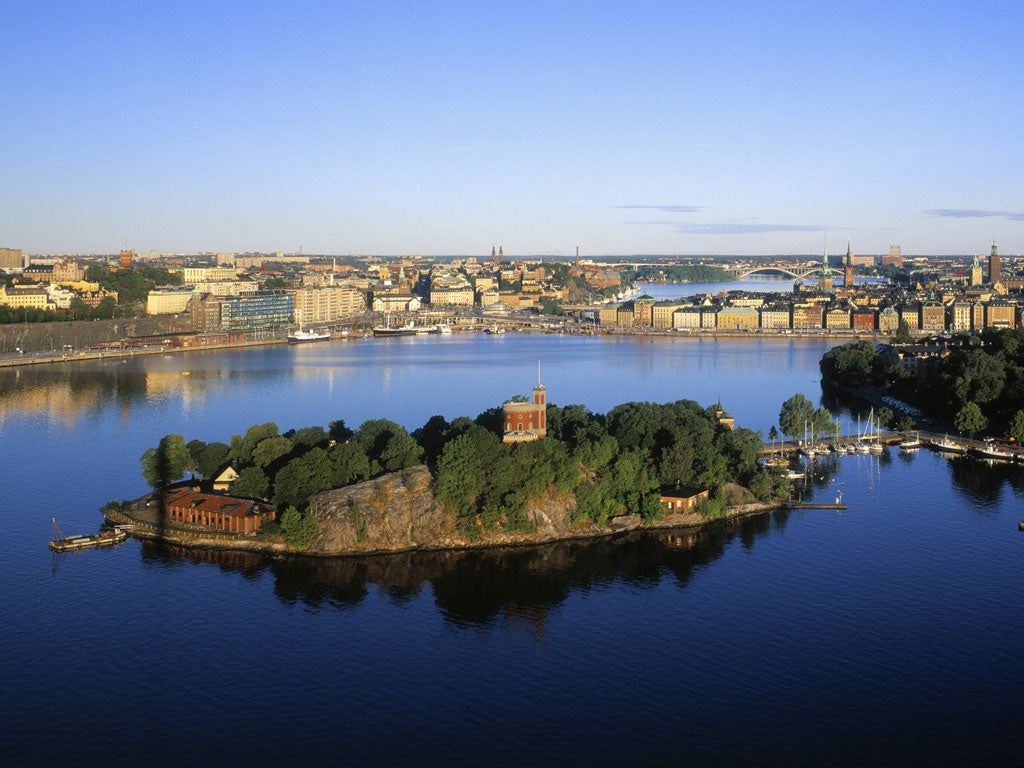Why not study in Sweden?
More young Brits are choosing to do their degrees in Sweden than ever before. There's a reason for that, says Catherine Adams; it's a much better place to live and learn

Your support helps us to tell the story
From reproductive rights to climate change to Big Tech, The Independent is on the ground when the story is developing. Whether it's investigating the financials of Elon Musk's pro-Trump PAC or producing our latest documentary, 'The A Word', which shines a light on the American women fighting for reproductive rights, we know how important it is to parse out the facts from the messaging.
At such a critical moment in US history, we need reporters on the ground. Your donation allows us to keep sending journalists to speak to both sides of the story.
The Independent is trusted by Americans across the entire political spectrum. And unlike many other quality news outlets, we choose not to lock Americans out of our reporting and analysis with paywalls. We believe quality journalism should be available to everyone, paid for by those who can afford it.
Your support makes all the difference.A bicycle bell echoes down a narrow, cobbled street as students head to lectures through the snow on a spring Friday morning in Lund. The bronze statue of botanist Carl Linnaus (1707-78) has been dressed up overnight in red woolly legwarmers.
Almost everyone here speaks English these days, (89 per cent of Swedes are bilingual), but that’s not the only reason for a recent surge in applications from UK students.
Studying in Scandinavia is free for students from all EU countries.
“It’s a win-win situation,” says MSc Biology student Alice Evans, 23, from Ranton in Staffordshire, as she heads for the Coffee Break Café, wearing a fur-style collar to keep out a -5C snow shower. “I think for a lot of students now, it’s just not feasible to study in the UK financially any more.”
The cost of living can be high in Sweden, with a beer costing at least £5, but Alice pays the equivalent of just £185 monthly rent including bills and internet. Summing up the financial pros and cons: “No tuition fees, slightly more expensive living, much more expensive drinking.”
An ever more popular choice
While leading UK universities warn of the ‘disastrous neglect’ of government funding of MAs, seen as vital for professional and academic careers, Scandinavia’s seeing a significant rise in postgraduate applications from UK students: the universities of Oslo, Stockholm and Copenhagen note an increase of 33 per cent, 35 per cent and 50 per cent respectively in the last three years.
Four masters students animatedly discuss their module around a seminar table in the International Institute for Industrial Environmental Economics– it’s typical of the ‘group work’ favoured in Swedish universities. Their common language is English, but this group comes from Iceland, Greece, Ukraine and India. There were applications from 150 countries to Lund last year.
“You meet so many different people from other places around the world that challenge the way you think,” says Alice. The Swedish system appeals in other ways too. “It’s more about your academic interests, than pushing you to achieve a particular grade.”
Even undergraduates are now heading to Scandinavia - Lund had an increase of 78 per cent in degree applications from the UK last year since the rise in tuition fees. Five degree subjects will be taught entirely in English from this year – including maths and physics, whose department boasts cutting edge facilities, such as the world’s leading laser-combustion diagnostics lab.
Sam Baldry, 20, an economics undergraduate from Nottingham on an exchange year from Exeter University, is now considering returning to Sweden for an MA.
“I recommend it," he says. "It’s more relaxed and there’s more interaction between the lecturers and the students and I think I’ve learned a lot more here.” But he was slightly disappointed to find that studying in Sweden is similar to the UK in many ways: “I was expecting everything to be a bit more of an adventure.”
Two blond, bearded youths take turns to push each other in a wooden cart under the frozen magnolia trees in front of the white, palatial university building. The exams are over and the sun’s come out. Aside from student pranks, Sweden is not as rife with crime as popular Scandinavian murder mysteries might suggest.
“It’s a beautiful country and it’s safe,” says Margarete Nordstrand, Director of External Relations.
Lund University plans to roll out more and more courses in English. The deadline to apply for next year has just passed, so when the latest figures are analysed, the university expects the number of UK students to have risen again.
“To be able to study at a very high level academically - it’s something very interesting for the UK students.” Sweden ranks second for Higher Education in the world. “They’re good ones and we like them, so they’re most welcome here.”
If the current trickle of students going overseas gains momentum, it could prompt questions about the UK’s future global academic reputation and fears of a new brain drain. For Alice Evans, the Scandinavian experience offers more than the UK: “Broader choices academically and a broader mind in terms of the rest of the world.”
Catherine Adams is senior lecturer in journalism at the Centre for Broadcasting and Journalism, Nottingham Trent University and the International University of Catalonia, and a regional radio newsreader for the East Midlands at BBC Radio Nottingham. She's a former BBC correspondent in Eastern Europe and South Pacific.
Join our commenting forum
Join thought-provoking conversations, follow other Independent readers and see their replies
Comments